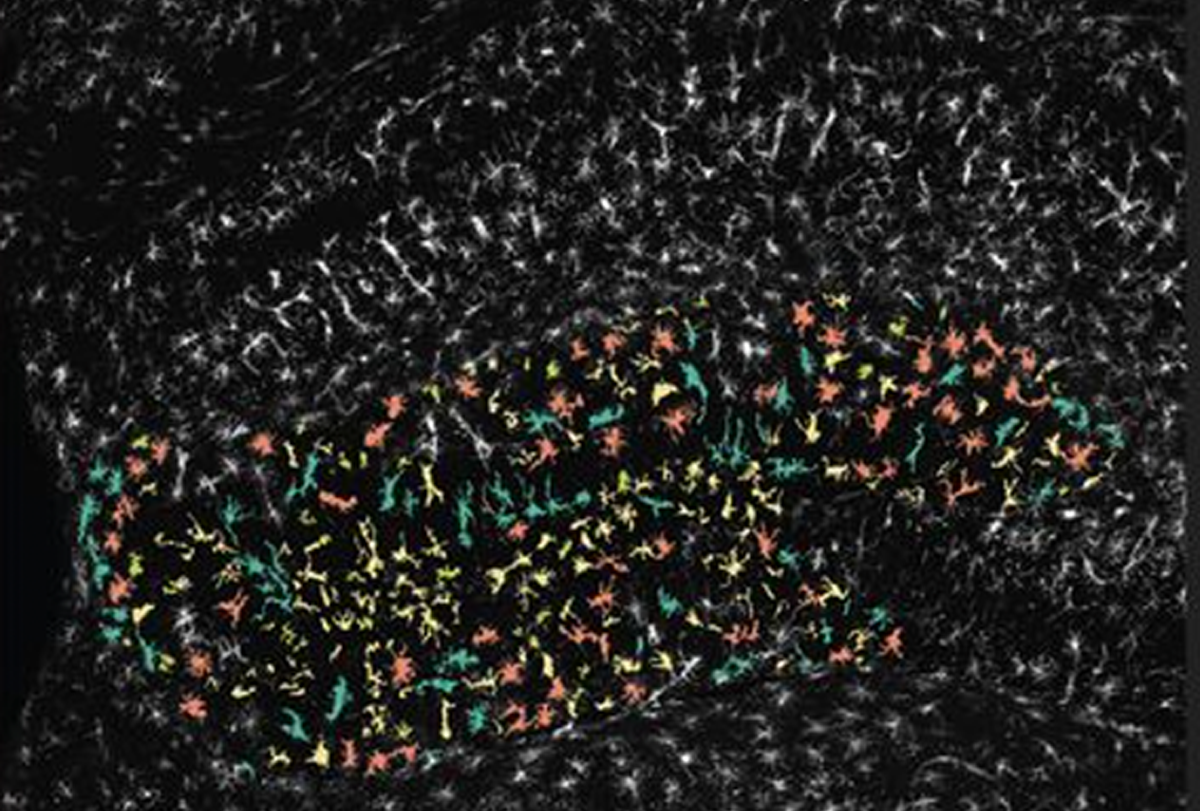- Recessive, rare, inherited variants in noncoding regions of the genome contribute to autism. Spectrum covered previous work from the same laboratory in 2016. Cell Genomics
- An open-label study of trofinetide for Rett syndrome showed continued clinical improvement over 32 months without additional safety concerns. Last year, Spectrum covered earlier results that led to the drug’s approval by the U.S. Food and Drug Administration. Med
- Rapamycin appears to acutely mitigate autism-like behaviors and neuronal activity in a mouse model of autism, according to a preprint. bioRxiv
- An analysis of microglial shape-shifting, including branching length and complexity, has enabled an open-source image package for the research community. eNeuro

Shape shifters: Cluster analysis can group microglial forms into distinct categories, accented here with color-coding.
- Biotech firm Ionis intends to launch a phase 3 clinical study of its Angelman syndrome treatment, ION582, after reporting positive results in phase 1/2a studies. Endpoints News
- Assessing functionality in autistic adults may help identify subgroups of autism, such as profound autism, and better determine support needs. Autism Research





